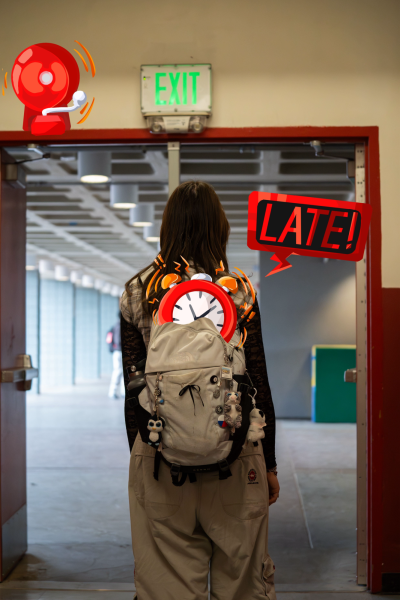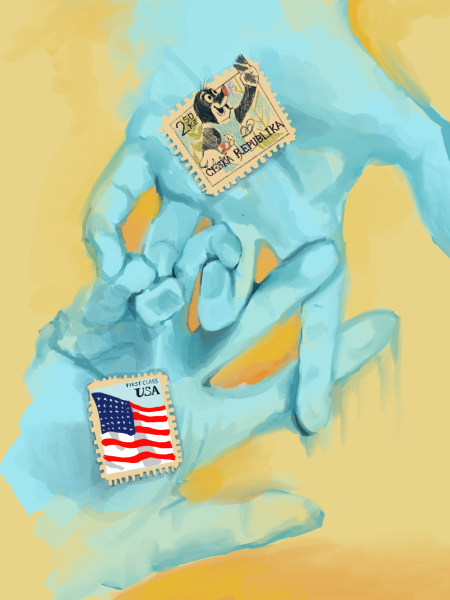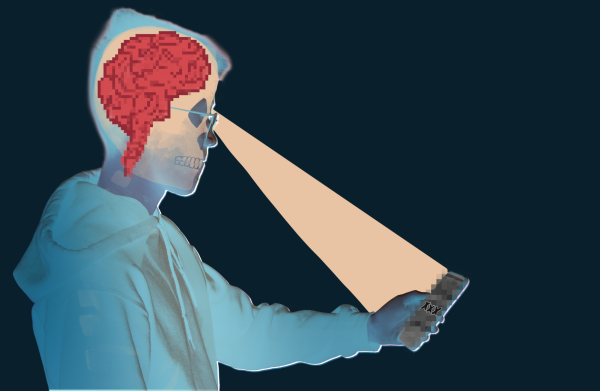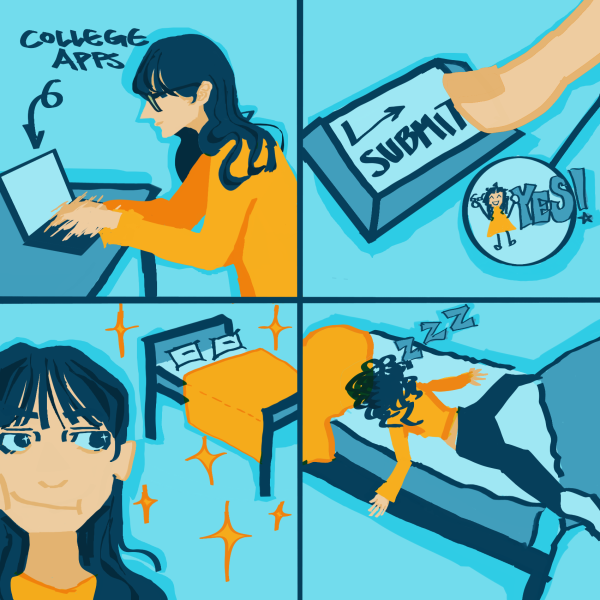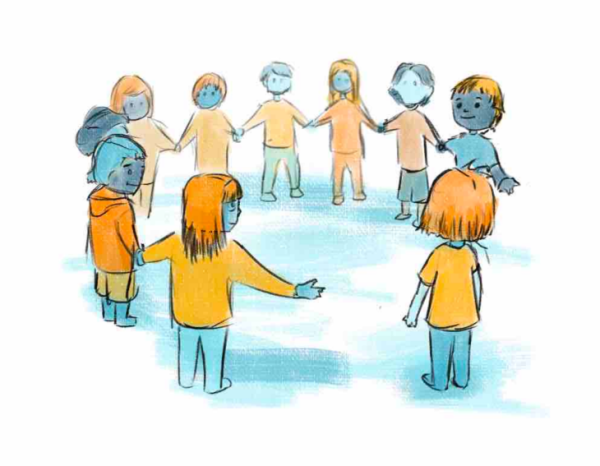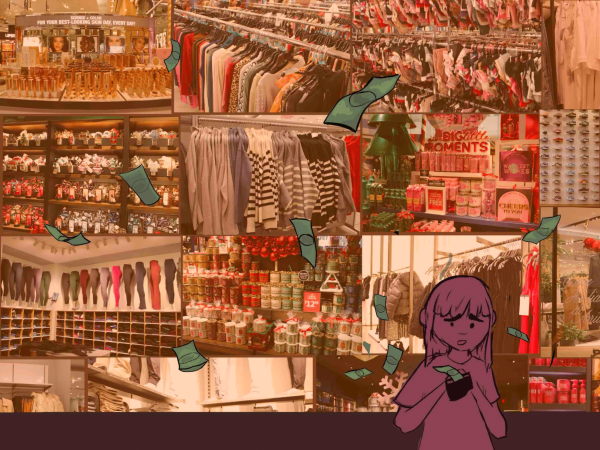New year, new staff: Meet your new teachers, part 4
Stuart Kaler, math teacher
By Hannah Ferguson
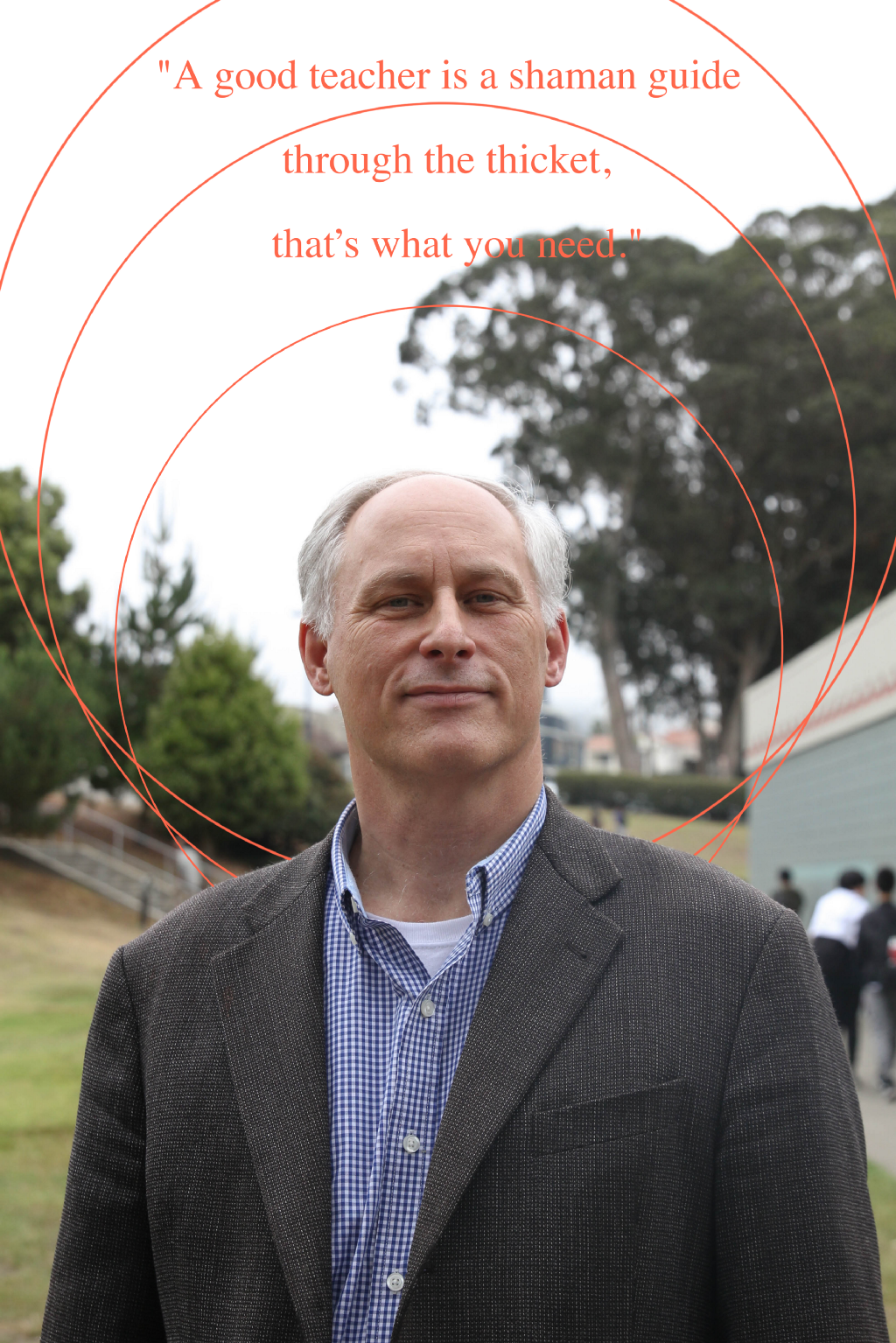
“A good teacher is a shaman guide through the thicket, that’s what you need,” math teacher Stuart Kaler said. He is currently teaching geometry and algebra 2. While math was always a subject he enjoyed in school, he went through several jobs before becoming a math teacher. His experiences in the Air Force and and in law have influenced how he has evolved to become the teacher he is now. These previous careers have taught him various life lessons, ones that he want to share with his students.
Have you always been interested in teaching math?
Yeah, I could probably teach science, but mathematics is a special subject for me. When I was going through public high school in Virginia, I was probably one of the top students in my high school at that time. And then I went on to major in mathematics. I was on an Air Force ROTC scholarship, and I was stationed up in North Dakota for four years as a nuclear missile launch officer. And in my off time, I finished a masters in mathematics and computer science while I was stationed out there. It was nice because it was shift work, so I had the time in my off hours. I was right next to the University of North Dakota, so I would walk down to the university and take classes.
What did you do with your math degrees?
So I began as a soldier, right, then I went to Honeywell and at the University of Minnesota, I was doing computer science. And I decided that, while I liked computer science, I didn’t want to write code for a living. And so at that point, I decided to do something completely different. I decided to go to law school. So I am an attorney. In fact, I am a registered patent attorney, so I worked with brilliant inventors. And now, this late in my career, I wanted to do something else. And teaching is what inspires me now.
What is your impression of Lowell?
Well, quite honestly, when I was a junior back in high school in Virginia, I was very well-aware of Lowell High School. It was in the news because of certain race discrimination lawsuits that were going on, even at that time in the late ’70s. And Lowell High School was always part of the conversation of being one of the best public high schools in the country. I was aware of that at your age, a continent away, you know, in Virginia. So I’ve known about Lowell. I have lived here since 1991 and I live in the neighborhood, it is just down the street, so I’m very happy to be here. I think the kids here are great. The kids here are smart. They’re motivated. I find that the students here are very friendly, as well. Very engaging. They are very eager to learn, and that’s what makes Lowell special, teaching here. And I say that without a very wide variation in teaching experiences in secondary schools, other high schools. But what I see before me is group of very dedicated kids. It’s a pleasure to teach here.
What sections of math do you teach?
I’m teaching four sections of algebra 2, and I’m teaching one section of geometry. And I think both of these sections are great. They’re both foundational. In both of these categories of mathematics my goal is to get every kid to understand all of the skills properly from the book, and get them to start thinking on their own, because mathematics is a uniquely human experience. And I think that geometry is great because it teaches logic, in the proofs, and helps set a foundation for the kind of thinking you will need to apply to other subjects and to life later on. And it teaches you that sometimes you work top-down on a problem, and sometimes you have to go bottom-up. It’s a combination of top-down and bottom-up thinking that gets you to where you want to go. It’s like a maze. Some people will start from the start, but some people like to look back and forth from the start and the end, meeting somewhere in the middle with the answer.
What are some of your favorite hobbies?
On the physical side, I have always enjoyed doing some martial arts. In high school I wrestled, and in college I did some of the harder martial arts. And now, I like to do Aikido and Tai Chi, so those are fun. Those are arts that you can grow with. Other hobbies: I love movies, I love books, I love travel.
What is your favorite place that you’ve been to?
Well Europe is always interesting. And also I recently took a trip to New Zealand, which was fun, just the north island. Beautiful country. And if you’re a Lord of the Rings fan, you’ve got to stop by the shire. They actually have the movie set where they filmed in the shire, and they kept that as a permanent attraction. So you can walk around and really feel like you’re in the shire. So that was a fun trip. It’s a beautiful place.
Vida Lamastra, special education teacher
By Olivia Sohn
A new member of Lowell’s special education staff, special ed teacher Vida Lamastra was inspired to help students with disabilities after seeing a cousin of hers in the Philippines not receive the academic support she needed. Prior to working at Lowell, she had her own behavioral therapy private practice. Missing the classroom brought her back to teaching.
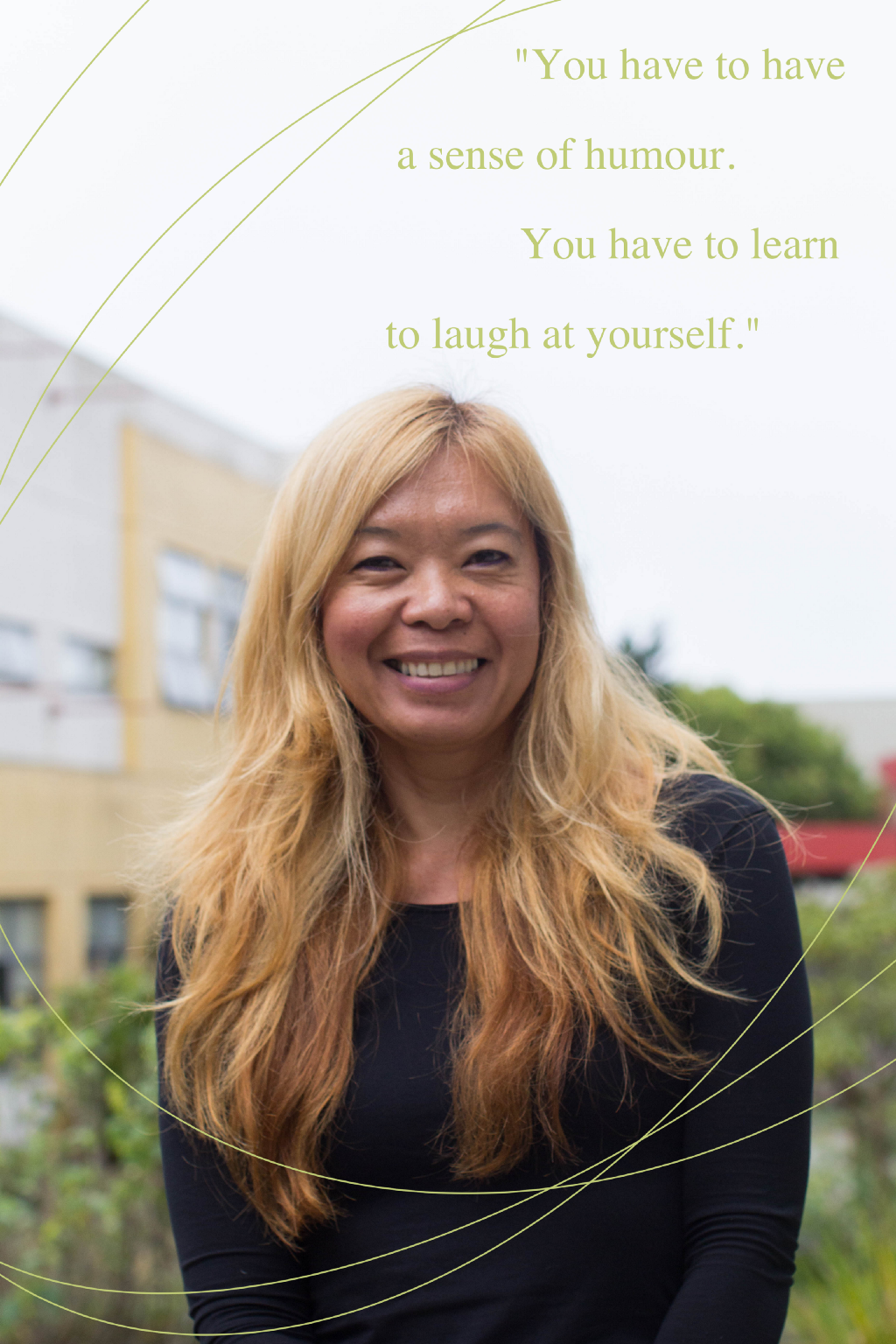
Describe what you do at Lowell.
I’m a moderate to severe special education teacher, so basically I’m working with students, freshmen and sophomores, and they are working towards a certificate of completion. Which is the equivalent of a diploma. They all have disabilities and they need extra support, and so that’s why they’re in my classroom. We do work on the Common Core curriculum: history, math, English, but not science, maybe eventually. And the other thing I work on is transitional skills, which is working on vocational training: job skills, and the whole process of writing an application, resume, so that way when they graduate from this program, they’ll go into “Access” and that’s more a transition where they’re learning vocational living skills.
What made you want to become a special education teacher?
My cousin was born with cerebral palsy in the Philippines. And in the Philippines, even today, there are not a lot of services in special education, especially in the school system. It’s gotten better now but there’s still kind of a stigma around being born with a disability. And so my cousin was born with cerebral palsy, and there were very little schools or services available for her, so my aunt and uncle basically took care of her at home. It was great, I mean she was taken care of, but she didn’t have any friends, she didn’t really learn how to read and write. And my mom and I would go over to their house and help out with her. And so I would just hang out with her. I felt a lot more comfortable and empathetic with people with disabilities, probably because of Tina, and so I just decided to be in that field.
What were your favorite subjects in high school?
I loved history, specifically World War II, European history was good too. I loved math, and art. I wanted to be an artist, but that’s something that my parents didn’t really support because they were concerned about how I was going to make a living as an artist. And I totally understand. I mean, it’s a little sad, I wish I had pursued it, but it’s okay because I love this field in special ed.
What were you doing before you started teaching here?
I had a private practice, I had my own business where I did behavioral therapy and I worked with young kids, three- and four-year-olds with autism. I did an intervention program, and I would work with them at home. And I would “push in,” like you’re going into the school and the classroom when they go from preschool to kindergarten. I really liked it, it was great money, but I missed being in the classroom, and working alongside my peers. Because when you’re working on your own, there’s not alot of support can and it can be kind of lonely. So I decided I wanted to go back to teaching in the classroom.
What are the challenges and rewards of teaching?
The biggest reward is seeing my students who are now in their teens and young adults, working. I have a couple of students working at Intuit — they are the ones that do TurboTax — and they have full-time jobs there, they have full benefits. And unless you really notice, you wouldn’t be able to tell that they have a disability.
What’s your impression of Lowell compared to other schools you’ve taught at?
It reminds me of a little UC Berkeley. Its pretty intense. The student body works really hard, you study hard. It’s an academic school, so it’s pretty cool that there is a special education department. What I really appreciate here is the support that I’ve received, from the teachers, administration and other general-ed teachers. Overall, it’s been a positive experience because people have been very open and supportive. The thing that I’ve been most impressed with is the student body. You are very comfortable with people with differences. You are very different from the generation that I grew up in. I think you are more accepting, and it doesn’t really phase you when you see our students walking down the hallway. It’s been really nice.
What’s been your funniest moment as a teacher?
When I first started teaching, I was working with these African-American kids. They were talking loud, they were yelling and screaming. They weren’t being rude, they were just being really loud. And I was trying to bring their energy down. So I said, “You know what, excuse me. Do you guys yell and scream in church?” And it totally backfired on me because they said, “Oh, yes, Ms. Vida, we yell and we sing, we holler, we clap, in our church.” And I realised, it’s gospel singing. And I started laughing. I said, “Oh my God, my bad, I’m sorry, I totally apologise.” It made me realise, I myself as a teacher am still learning. I thought that was the funniest thing. You have to have a sense of humour. You have to learn to laugh at yourself.
Karen Arnold, math teacher
By Kaya Brown
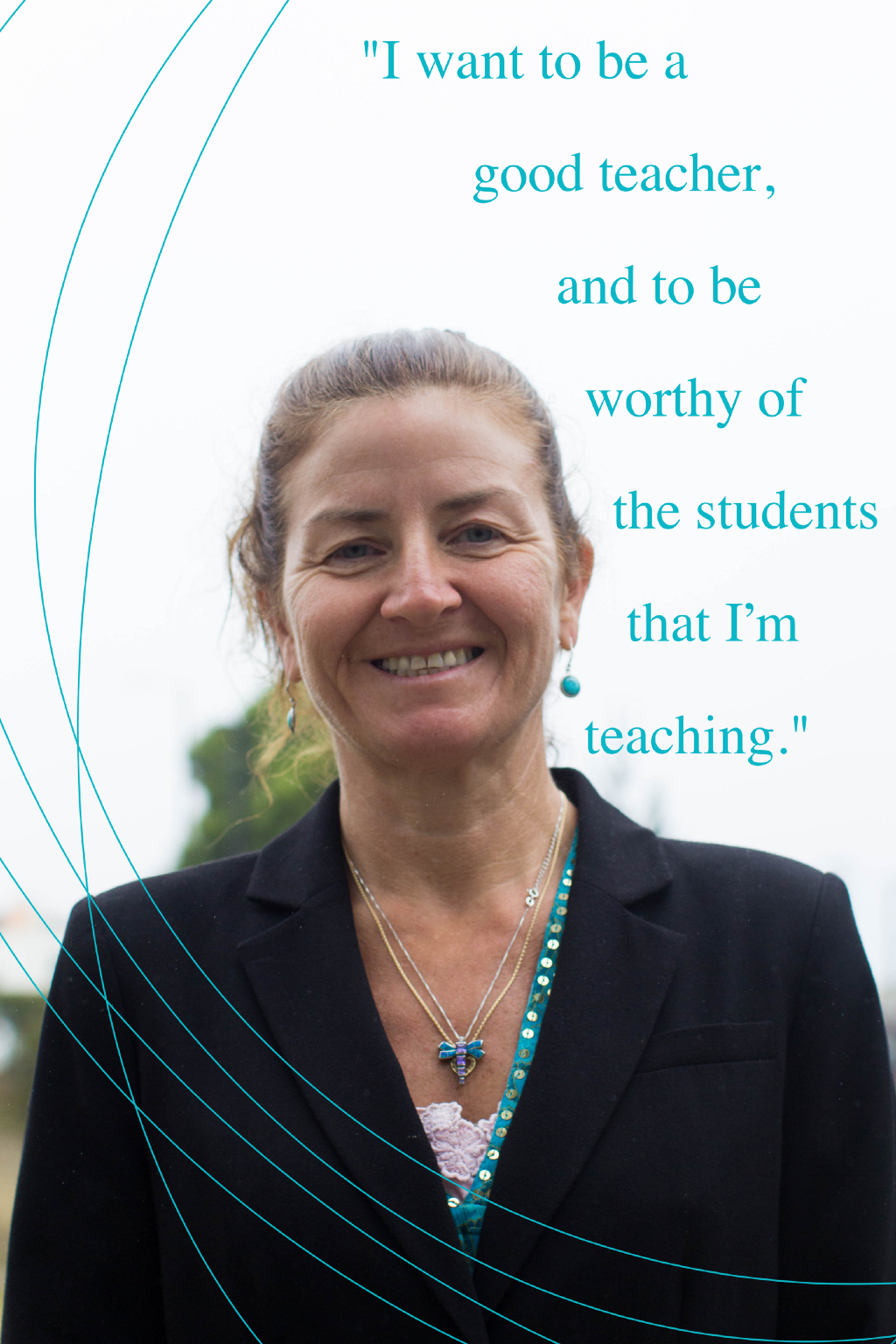
“I want to be a good teacher, and to be worthy of the students that I’m teaching,” math teacher Karen Arnold said. Arnold decided she wanted to become a high school math teacher while she was student-teaching at San Francisco State during graduate school. Arnold has taught many levels of math, including calculus 1, calculus 2, algebra 1 and algebra 2, as well as various college courses. In her free time, she enjoys cooking and biking.
What is one thing that you loved about your high school experience?
I loved learning languages. I went to an all-girls high school, and they didn’t have many sports. I liked gymnastics in middle school, but they didn’t have a gymnastics team. So I decided I was interested in languages. Sometimes students wouldn’t have a lunch, and I didn’t have a lunch, so I decided instead of having a lunch I would take French. I liked languages, and I liked math. So I did math early in the morning, and I did French during lunch. So I had a very full day.
What is your impression of Lowell compared to other schools you’ve taught at?
It seems like all the students are motivated. It’s like self motivation. So there are a lot of high-achievers. Everyone wants to succeed. So in a way that’s the same. The only other school I taught at was SF State, so that’s comparing college and high school. But I really like the student body here. I really like the staff. There’s a lot of dedicated teachers and administrators. My impression is that it’s a really good environment to be in.
What have been the challenges and rewards of your teaching career?
I think one of the main challenges is helping all students of all levels. Since we have a lot of students in the class, I always want to make sure that I help all my students. You have some advanced students and you want to make sure they stay challenged, but you want to make sure you help everyone.
So the rewards are when students get it. Like when they succeed. And then I see that they really understand the concepts I’m trying to teach them. And also they realize that anyone can do math. Because I think some students think they’re not good at math. So I try to make it fun for them. I take more complicated problems and break them into smaller pieces, so they see that anybody can actually do them. So that’s rewarding.
What has been your funniest moment as a teacher?
In the spring, one of my students played a joke on me. He put one of the portable speakers on my desk, and while I was teaching he would make music come out of it, and I didn’t know where it was coming from. I turned around and it stopped. I started talking again, and it started playing again and I turned around and I saw it. And I said, “Where’d this come from?” and nobody said anything, but everyone knew that he put it there. And finally at the end I figured out who it was. And so that was funny. They played a joke on me.
What inspires you?
I get inspired when I’m in the class, and students ask questions. Not just the work that we’re doing, but they ask other questions. When they ask me additional things. And they want to know “why?” Not just the homework, but “why is this true?” or “how can we relate that to other things?” either in school or in their life. I get inspired by people who are motivated. You can find a lot to inspire you here, because people are motivated.
What is one of your favorite hobbies?
One of my favorite hobbies is road cycling. I try to ride as many miles a week as I can. Right now I’m really busy, because there’s school, but during the summer I did a lot of long rides. I did 200 miles a week on average. I did a lot of steep rides. I went up to Sonoma County, and Russian River and rode Mount Diablo, then I’d do Hawk Hill. And here in San Francisco, there are a lot of hills. So just riding around here, you can get a really good hill workout. I like going up hills.
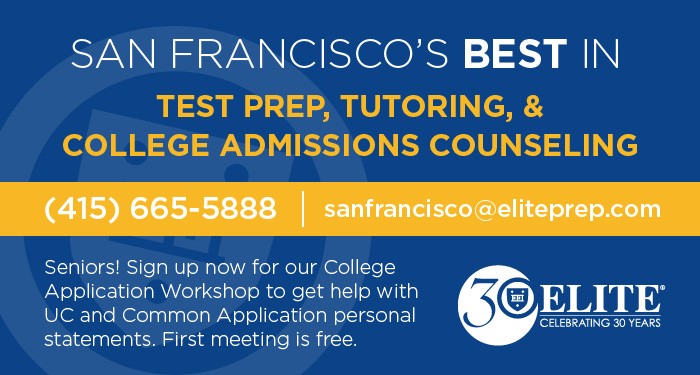
Marcus Christmas, Wellness Coordinator
By Jocelyn Xie
“One of the things that I keep telling myself is about destiny. We all have a purpose for being here. We all have the destiny to fulfill. For me, it’s helping people. That inspires me.”
This is not a quote from some historical figure but Marcus Christmas, Lowell’s new Wellness Coordinator. Growing up in the Midwest, Christmas’s mother would always bring him to different local volunteer organizations. This is where he first learned the meaning of community service, and he’s been devoting himself to serving the community ever since. Naturally, Christmas becomes a social worker. From serving in homeless shelters and foster homes to schools, he has witnessed the comedies and tragedies of daily life. Last year, Christmas moved from the East Coast to San Francisco, where he began an entirely new journey of becoming a school health director. One thing hasn’t changed, though — his dedication to always giving back to the community.
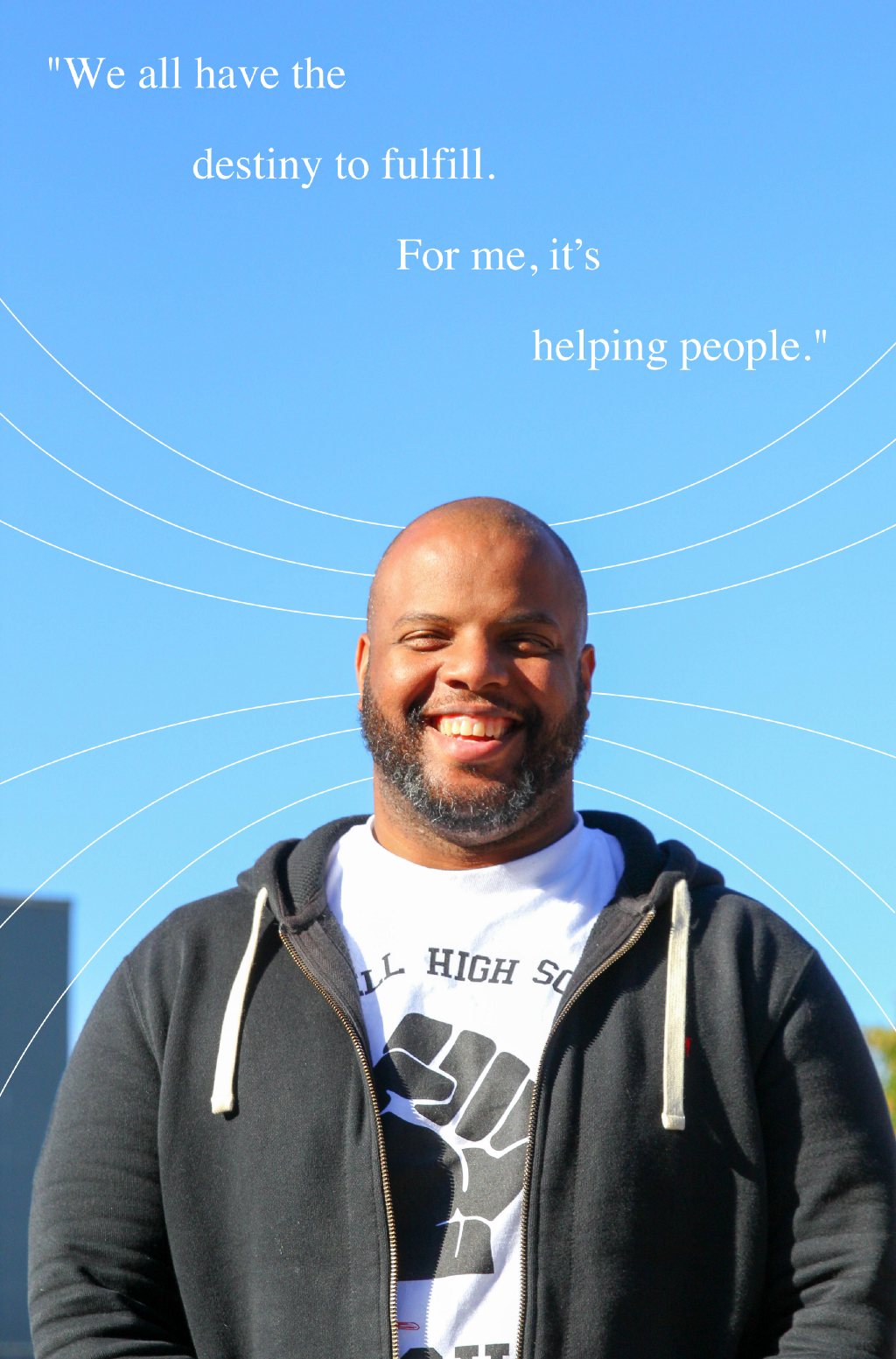
Describe some of your experiences as a social worker.
As I was working at the homeless shelter, I was dealing with the homeless population which consists of single homeless individuals and families that had children. When I moved from Toledo to Philadelphia, I still was working with the homeless population with the Salvation Army. But at each of these programs, I began to move up and became a director. So I found myself running one program called the Single Residency Occupancy for single individuals, and there they were also running a foster reunification care program for parents who had children living in foster care reroutes. Through these programs, we reunited them in their homes. A lot of times these parents were battling with some kinds of drug addiction, so it was important for me to see families who had been broken apart to be reunited. That’s when I found myself doing more work, just a different type of scope. It wasn’t so much the emergency shelter type of work anymore, but it was more like a residential type of programming. Then after Salvation Army, I became the deputy director of a domestic violence organization which encompassed an emergency shelter for women and children who were fleeing domestic violence situations. Attached to that, we also had a transitional housing program and we provided community counseling. So we not only did in-house programs, but we also branched out to the community to make sure that we had counseling centers opened throughout the county that could provide assistance for women, children or even men.
How did you shift from being a social worker to a school health director?
Then came my work with a lot of schools within the community. We worked a lot with high schools and middle schools, going in holding many domestic violence education programs. We were partnering with the administrators, staff and also the teachers. Through these programs we were really trying to make sure that we were supporting those kids. This [partnership with schools] led me into more and more work with children and that was when I became an in-home therapist. I would be working with kids who had behavioral and emotional issues and concerns. I would go into their homes and provide in-home therapy. Not only was I providing therapy to that child but I was also dealing with the entire family dynamic. If I had a kid struggling in school, I would need to figure out what was really happening in the home that was causing some of the struggle. If there were things happening in school, I would work with the school’s administration and teachers to make sure that the treatment plan we were providing for the child was supportive and the child would be able to accomplish those goals.
These educational programs then led me into doing a lot of my school-related works and working with the school systems. And then coming here to Lowell, that’s what directed me into what I am doing in this school type of therapeutic environment.
Would you consider working at Lowell a turning point in your career life?
I think working in a school is more like an add-on to it than a turning point since I’ve been able to do many different exciting things in social work that a lot of social workers usually do not have the opportunity to do. So I think all of the experiences I have done in the past prepared me for what I am doing now because to be a very sound social worker, you have to be able to work in the trenches. Sometimes the trenches were working in those homeless environments and working with the drug addicts to really find out what’s happening with people. And sometimes the trenches were in working with child welfare and seeing abuse in the forefront and releasing supports with those individuals. When you are working at school, however, all of that is encompassed in the school. So it’s all about knowing how to support individuals.
How would you compare the working on the West Coast versus the East Coast?
I lived in Jersey City, which is right across the Hudson Bay, and the working environment on the East Coast is very fast-paced and very demanding; you have to move fast constantly. So I think since moving here to San Francisco, it’s been a slower environment for me, but it’s been a good adjustment. I still feel the same things you can get on the East Coast you can get it out here on the West Coast. I am not missing out on anything, but it has definitely been a slower tempo.
Do you think your experiences from working as a social worker have contributed to your current job?
Yes, because at any given day here at the Wellness Center, we have different types of issues throughout the day and me being able to help someone with a particular situation really enhances what I am doing here as a health coordinator.
What are some health advice you have for the Lowell community?
I would say self-care. Make sure that you have a routine of self-care, whether that’s hanging out with friends or family or just going to the gym. Whatever that self-care thing is, really adapt the routine to your life because it will ease some of the stress. In order to be the best you, you have to take care of yourself.
Raine Hu contributed to the teacher profile of Marcus Christmas.
Update on Dec. 23 at 11:52 a.m.: The banner photo has been updated to include wellness coordinator Marcus Christmas. His photo has been placed accordingly next to his profile as well.
These interviews have been edited and condensed by Tammie Tam.



